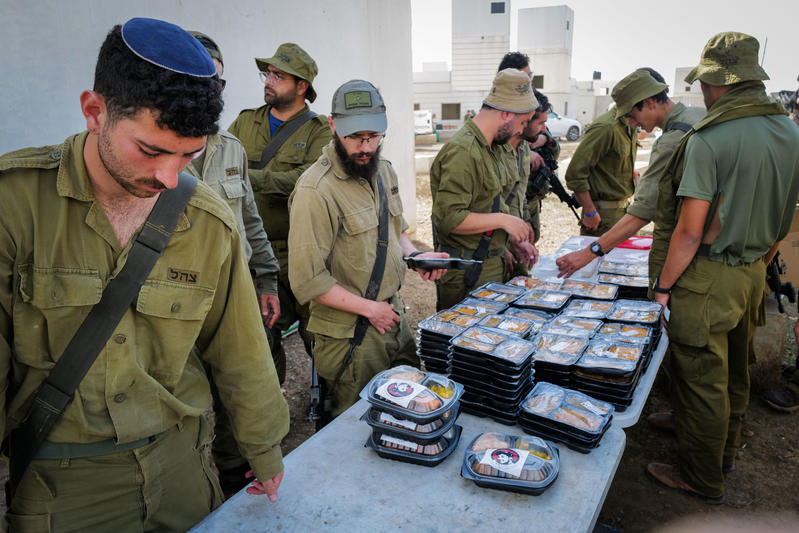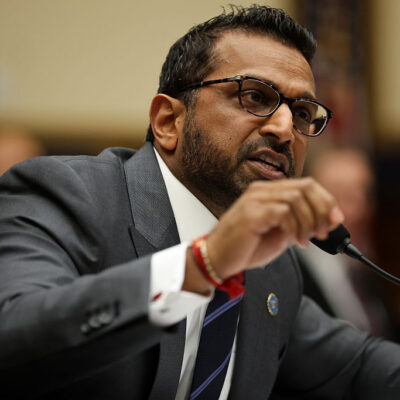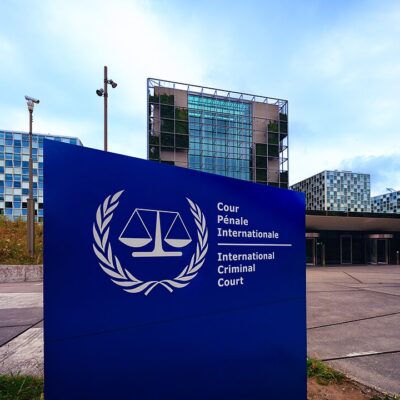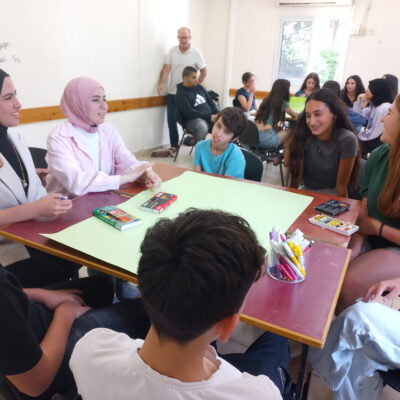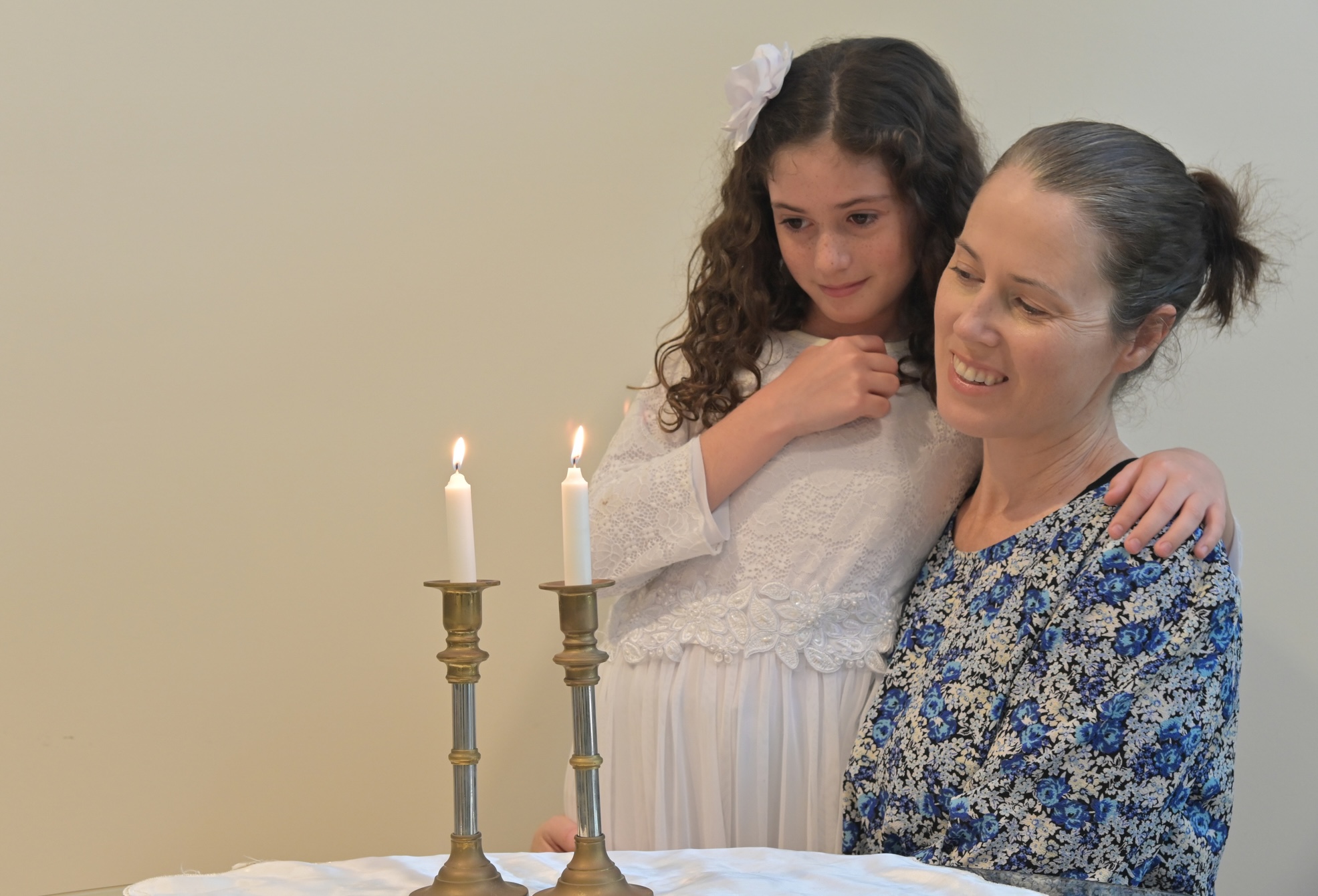WHAT COMES NEXT
Israel Policy Forum’s Michael Koplow: Hostage deal ‘frees up’ U.S. Jewry for long-term initiatives
'If everything actually goes well in the most optimistic scenario, then maybe we can see a return to the American Jewish community acting as leaders in a peace process that will hopefully be more successful than the last one'

Image from the March for Israel on the National Mall, Nov.14, 2023 in Washington, D.C. Photo by Drew Angerer/Getty Images
On Thursday morning, news that both Israel and Hamas had accepted President Donald Trump’s ceasefire and hostage-release plan prompted a Jewish communal exhale of relief.
In Tel Aviv’s Hostages Square, there were scenes of dancing and jubilation. Some cried, some embraced, some poured shots of arak and toasted “l’chaim” — to life!
In the Diaspora, Jewish groups across the political spectrum echoed that same sense of relief, welcoming a deal that promises the return of all living hostages within 72 hours of a ceasefire and the eventual return of the slain ones, as well as a potential pathway to stability in Gaza and the wider Middle East. The deal brings its own set of challenges as well in the short and long term, beginning with the release of some 2,000 Palestinian prisoners, including several terrorists responsible for deadly attacks, potentially including the Oct. 7 massacres themselves.
For the past two years, American Jewish organizations have navigated emergency fundraising and lobbying for Israel, while simultaneously responding to a deadly wave of antisemitism. With the imminent end of the Israel-Hamas war, some of that pressure may lighten, though it will surely not disappear completely. Instead, U.S. Jewry will find itself with new roles to play through the slower reconstruction and recovery process, in Israel and in Gaza, while also grappling with a more complicated relationship with the State of Israel and its government.
To understand the role of American Jewry going forward, eJewishPhilanthropy spoke on Thursday with Michael Koplow, chief policy officer at the Israel Policy Forum.
This interview has been edited for length and clarity.
Nira Dayanim: For the last two years, the war in Israel has been at the center of Jewish communal life, both emotionally, and in terms of funding. This ceasefire brings about a paradigm shift. How might things look different now?
Michael Koplow: So much of the energy and attention and focus the last two years has been on the issue of the hostages and trying to get beyond the immediate aftermath of October 7. And assuming that this deal actually goes through and the hostages hopefully come home on Monday without a hitch, I think that that’s going to free up a lot of the Jewish institutional attention to other Israel-related things.
Some of them will still be related to the aftermath of Oct. 7. There’s, of course, going to be a lot of focus on the returning hostages and their mental health, and I think probably the wider issue of [post-traumatic stress disorder] and mental health throughout Israel. There still is, of course, work to be done in terms of rebuilding the communities in the Gaza envelope. There’s still going to be Oct. 7-related fallout. But I think a lot of the things that the Jewish community was focused on before Oct. 7 — in particular the issue of democracy in Israel — I think that this will provide an opportunity to focus the attention back onto those sorts of issues.
So hopefully the Jewish community will no longer be operating in crisis mode, which has effectively been, I think, the posture for two years, and can start to focus on other projects and start to focus on more long-term thinking.
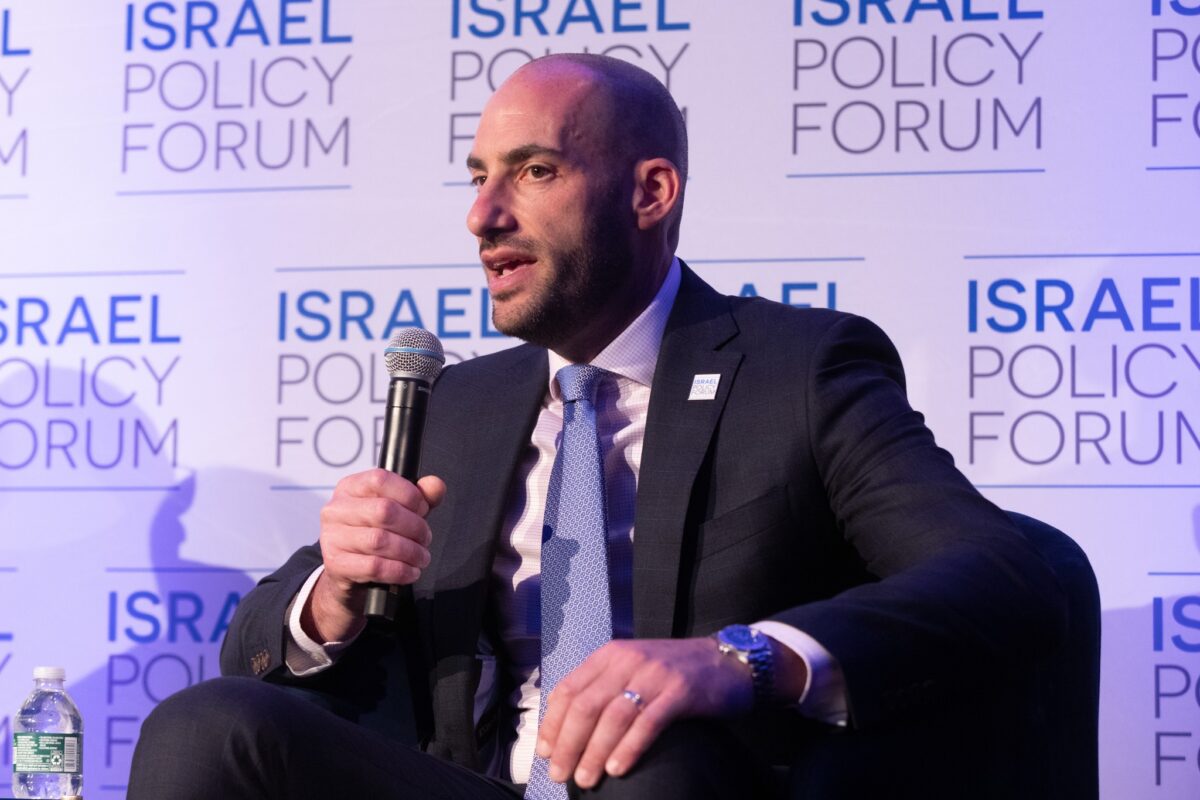
ND: Given that the agreement does move forward, what role might the Jewish community play in what comes next?
MK: Assuming that the next phase does indeed go through, I think that there is an opportunity to really focus on the issue of Palestinian Authority reform that there wasn’t before, especially because the agreement explicitly contemplates the Palestinian Authority taking over Gaza at the end of a reform process. There’s going to be a lot of thinking about what that reform process has to touch and what it should look like, and what some of the benchmarks are. So I think that’s definitely one issue.
Another issue is going to be to what extent the Jewish community wants to get involved in any rebuilding efforts in Gaza itself. Before the 2005 disengagement, there was, famously, a Jewish community effort to purchase the greenhouses in Gaza so that they could be used by Palestinians once Israel disengaged. And that did not end well. The greenhouses ended up getting purchased and then destroyed immediately. And so I think that there’s an open question as to whether the Jewish community is going to want to be involved in rebuilding Gaza, particularly given that it’s going to be rebuilt for Palestinians. But there very well may be involvement in that.
And then ultimately, the very last clause of the agreement calls for the United States to establish a dialogue between Israel and the Palestinians over peace, effectively relaunching the peace process. And that’s something that the American Jewish community traditionally has been very involved in in all sorts of ways.
So if this actually comes to fruition, and there is a new Palestinian government in Gaza and rebuilding takes place, then I think we should expect to see American Jewish institutions start to engage back in on a peace process in terms of trying to get the parties together and figuring out where there are gaps and where where the American Jewish community can be helpful, either in launching initiatives or in specific funding opportunities, and I don’t think we’ve really seen that type of involvement since the height of Oslo.
So if everything actually goes well in the most optimistic scenario, then maybe we can see a return to the American Jewish community acting as leaders in a peace process that will hopefully be more successful than the last one.
ND: Are there any aspects of the role that Jewish organizations played over the last two years that you find notable? How might the role of legacy Jewish community organizations be changed by the war?
MK: So on the first issue, the American Jewish community was actually, in a lot of ways, more invested in the hostage issue than Israelis were in the early days of the war. Now, we see enormous support in Israel for the hostages, and we’ve seen polls now for months that 70% of Israelis wanted the war to end, even if it meant Hamas was not going to be defeated, in order to bring the hostages home.
During the first few months of the war, Israeli public opinion was actually going in the other direction. Israeli public opinion prioritized the war over the hostages, and I think that it’s kind of easy to forget now that groups like the Hostage and Missing Families Forum found enormous success here in the United States and really got support from the American Jewish community and from American Jewish institutions in overwhelming numbers. In many ways, I think that the American Jewish community led on this issue even more than Israelis. I think that was hugely significant.
And we now see, for two years, but particularly today, we see hostage families thanking President Trump and thanking the United States. And they made so many inroads here, with the Trump administration, and before that, with the Biden administration and continuously with members of Congress, and all of that was supported by the American Jewish community. So I think that’s an issue that the American Jewish community should feel very proud of.
In terms of the long-term fallout [of the Israel-Hamas war], it’s hard to say. There are now multiple polls showing that American Jews in large numbers — and in particular, younger American Jews — have a lot more difficulty with what I call “establishment, American Zionism.” And maybe that will turn around in the next few months and years, now that the war is over, but it may not, and I think that American Jewish institutions are going to have to grapple with what it means for American Jews to have a different relationship with Israel.
And that’s going to impact all sorts of things. It’s going to impact funding. It’s going to impact American Jewish education on Israel. It’s going to impact the types of Israeli organizations that American Jews interact with. So it’s way, way too early to say anything definitively, but I don’t think that we should expect that now that the war is over, everything is going to just go back to the status quo ante, as if the last two years didn’t happen.
ND: Can you share with me a bit more about how you think the fallout of the war might impact American Jewish organizations?
MK: I think that American Jewish institutions, historically and in many ways instinctually, want to support the Israeli government and now have two, two important episodes, first the judicial overhaul and the nine months before Oct. 7, [2023,] and then the past two years since [the Oct. 7 attacks], where what the Israeli people wanted was one thing and what the Israeli government wanted was another. And in both of those instances, you saw American Jewish institutions supporting the preferences of the Israeli people over the Israeli government.
During the judicial overhaul, you saw lots of American Jewish organizations coming out and criticizing the Israeli government and supporting the protesters who were in the streets. And since Oct. 7, we’ve seen American Jewish institutions support the hostage families in ways that the Israeli government did not and calling for a deal to bring the hostage home that would end the war in ways that the Israeli government was not pursuing. And I think that’s going to have a long-term impact.
Leaving the specific policies aside, the fact that American Jewish institutions have now twice mobilized to support things that the majority of Israelis wanted to see, even though the Israeli government did not want to see those same things. In the future, I don’t think it’s going to be quite so automatic for American Jewish institutions to adopt a position that says, “We can’t go against the Israeli government. It’s not our job to judge or to comment.”
Now that that seal has been broken in important ways, it’s going to lead to a rebalancing between American Jewish institutions and Israeli governments. More often than not, I expect that there will be alignment, but I think that when there isn’t alignment, you’re probably going to see less reluctance to call out things that the Israeli government is doing than you would have seen before.
ND: What challenges do you anticipate that the Jewish communal world might face as this chapter potentially comes to a close?
MK: One is going to come from the aftermath of this deal. Everybody now is sort of experiencing this breath of fresh air, and wants to, for obvious reasons, put the events of Oct. 7 and the events of the last two years behind them. But there’s still a long way to go.
Even if all the hostages hopefully come home next week, there’s an enormous amount of follow-up that has to take place, if Gaza is actually going to move from being a problem into a place that’s more manageable, both for Palestinians and for Israelis. If Hamas does not disarm, and if Hamas remains with some measure of power in Gaza, and either this Israeli government or a future Israeli government decides to relaunch military activities, I think that there’s going to be an instinct for a lot of people to look away and to try and wall it off. And I think that the ongoing push and pull as to what happens in Gaza, and making sure that the euphoria that people are feeling now doesn’t just lead to people ignoring the issue going forward. I think that’s going to be a challenge.
We’ve seen in the past, on both sides of the ocean, the ways in which it’s easy to ignore a problem, just until the point where it actually blows up. This is an issue where it’s going to require ongoing and deep engagement, and they’re going to have to focus on this issue for a lot longer than they want to focus on this issue.
I think that’s going to be one challenge, and another one is that before Oct. 7, American Jewish organizations were really supportive of the Abraham Accords and gearing up for more regional normalization, and that process has been set back. It’s not over, but it’s been set back significantly. Recalibrating expectations about what is possible in the immediate aftermath of the Gaza war, and figuring out how organizations can can rebuild some of the trust between Israel and other states in the region, and how organizations can play a helpful role of serving, in some ways, as intermediaries between Israel and other states in the region, that’s going to be really important. People are gonna have to… take a bit more of a long-term view than they thought they were going to have to take before Oct. 7.

 Add EJP on Google
Add EJP on Google